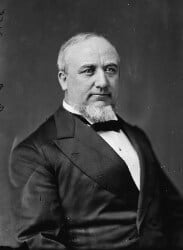
“If God deprives His children of any present blessing, it is so that He may bestow upon them a greater and more glorious one by and by.”
LDS Quotes on Trials

“If God deprives His children of any present blessing, it is so that He may bestow upon them a greater and more glorious one by and by.”
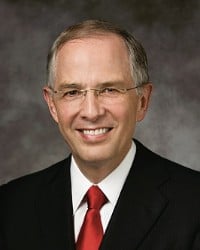
When personal difficulty, doubt, or discouragement darken our path, or when world conditions beyond our control lead us to wonder about the future, the spiritually defining memories from our book of life are like luminous stones that help brighten the road ahead, assuring us that God knows us, loves us and has sent His Son, Jesus Christ, to help us return home.
| Spiritually Defining Memories
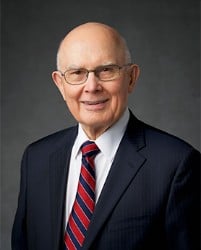
The first principle of the gospel is faith in the Lord Jesus Christ. Faith means trust – trust in God’s will, trust in His way of doing things, and trust in His timetable. We should not try to impose our timetable on His. . . . Indeed, we cannot have true faith in the Lord without also having complete trust in His will and in His timing. . . .
The Lord’s timing also applies to the important events of our personal lives. A great scripture in the Doctrine and Covenants declares that a particular spiritual experience will come to us “in his own time, and in his own way, and according to his own will” (D&C 88:68). This principle applies to revelation (see Oaks, “Teaching and Learning by the Spirit,” Ensign, March 1997, 11) and to all of the most important events in our lives: birth, marriage, death, and even our moves from place to place. . . .
It is not enough that we are under call, or even that we are going in the right direction. The timing must be right, and if the time is not right, our actions should be adjusted to the Lord’s timetable as revealed by His servants. . . .
| “Timing,” Ensign, October 2003
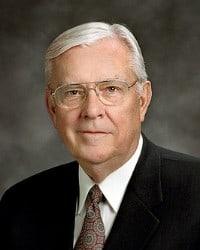
No matter how difficult the trail, and regardless of how heavy our load, we can take comfort in knowing that others before us have borne life’s most grievous trials and tragedies by looking to heaven for peace, comfort, and hopeful assurance. We can know as they knew that God is our Father, that He cares about us individually and collectively, and that as long as we continue to exercise our faith and trust in Him there is nothing to fear in the journey.
| “You Have Nothing to Fear from the Journey,” Ensign, May 1997, p. 59

“The Christian doctrine of suffering explains, I believe, a very curious fact about the world we live in. The settled happiness and security we all desire, God withholds from us by the very nature of the world; but joy, pleasure, and merriment, He has scattered broadcast. We are never safe, but we have plenty of fun, and some ecstasy.
“It is not hard to see why. The security we crave would teach us to rest our hearts in this world and oppose an obstacle in our return to God; a few moments of happy love, a landscape, a symphony, a merry meeting with our friends, a bathe or a football match, have no such tendency. Our Father refreshes us on the journey with some pleasant inns, but will not encourage us to mistake them for home.”

“I love the man who can smile in trouble, who can gather strength in distress and grow brave by reaction. It is the business of little minds to shrink, but he whose heart is firm, and whose conscience approves his conduct, will pursue his principles to the death.”
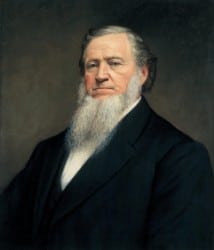
“The gospel causes men and women to reveal that which would have slept in their disposition until they dropped into their graves. The plan by which the Lord leads this people makes them reveal their thoughts and intents, and brings out every trait of disposition lurking in their beings.”

“As Joseph reminded his followers, ‘I believe that God foreknew everything, but did not foreordain everything.’ Exaltation, is within the reach of all, even if the journey toward that divine end is fraught with suffering. If we had insurance against a painful journey, one-third of the heavenly hosts would not have abandoned the enterprise. The risks are real. Or, in the language of the Book of Mormon, we cannot assume that our afflictions come from God, but we can know that ‘God shall consecrate [our] afflictions for [our] gain.'”

No one reaches out to you for compassion or empathy so you can teach them how to behave better. They reach out to us because they believe in our capacity to know our darkness well enough to sit in the dark with them.
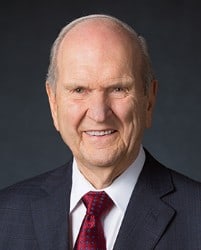
“Some people pray only when confronted with personal problems. Others don’t pray at all. A scripture makes this observation: “Ye do not remember the Lord your God in the things with which he hath blessed you, but ye do always remember your riches, not to thank the Lord your God for them.”
| Ensign, May 2003, p. 7